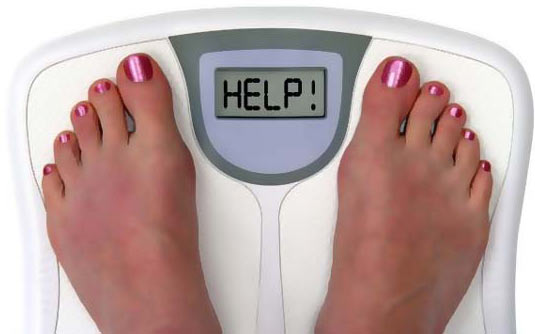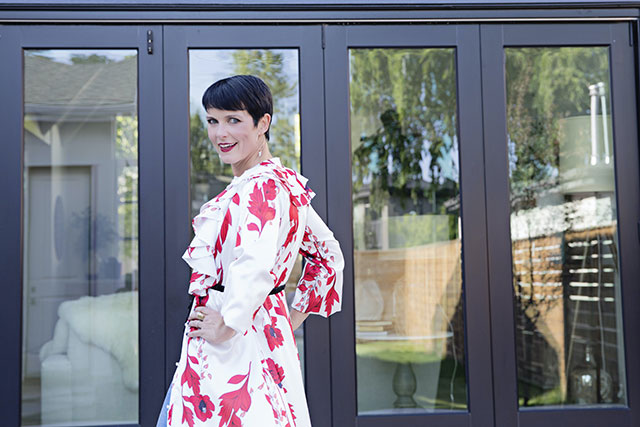Losing weight and keeping it off can feel like an impossible feat, especially if you’ve tried every fad diet under the sun. I remember feeling that very same way. You might have seen some success in the short term, but as soon as you return to your everyday eating habits, your lost weight always seems to come creeping back. So, what’s the deal? Why do fad diets never seem to work in the long term? Let’s take a closer look at the differences between fad diets and lifestyle changes, and some underrated weight loss tips you might have yet to consider or implement!
The Problem with Fad Diets
Fad diets are all about restrictive eating and cutting out entire food groups. Ultimately, they’re not sustainable for more than a few months, weeks, or maybe even hours. Why? Because they’re simply not enjoyable to eat. When you’re constantly depriving yourself of the foods you love, it’s only a matter of time before you break down and binge eat. Not to mention, fad diets often lack the essential nutrients your body needs to function properly. This tends to lead to feeling fatigued, low energy, and moody.
Let’s take a look at some fad diets to see exactly why they can be so problematic, or at the very least, ineffective:
The Atkins Diet
For decades, the Atkins diet was all the rage. This low-carb, high-fat diet encourages weight loss by putting your body into a state of ketosis. While you may see some initial results with this diet, it’s not sustainable in the long term nor is it right for everyone. Why? Because it’s incredibly restrictive and challenging to stick to. Plus, the lack of carbs can lead to low energy levels and brain fog.
The Paleo Diet
The Paleo diet is founded on the idea that humans should eat only the same foods our ancestors consumed during the Paleolithic era. That means no grains, legumes, dairy, or sugar – pretty much eliminating entire food groups! This diet is also very restrictive and can be tough to stick to, mainly because of how limited your food options are.
Cabbage Soup Diet
The Cabbage Soup Diet is a short diet that requires you to eat nothing but, you guessed it, cabbage soup. This is yet another restrictive fad diet. It’s also very low-calorie, which can lead to feelings of deprivation, binging, and intense cravings. And if you’re like most people, eating the same thing day after day is not very enjoyable!
Raw Food Diet
Another restrictive diet, the Raw Food Diet requires you to eat (almost) only raw fruits, vegetables, and nuts. This diet virtually eliminates entire food groups, like grains and dairy, which can lead to nutrient deficiencies.
As you can see, all of these fad diets have one major thing in common: they’re restrictive and they’re not sustainable. And when you’re constantly depriving yourself of certain food groups, it’s only a matter of time before you give in and overeat.
How Fad Diets Set You Up for Failure
There are a few key ways that fad diets set you up for failure:
- They often lack essential nutrients: Fad diets tend to be very restrictive, leading to nutrient deficiencies. When your body isn’t getting the nutrients it needs, you may start to feel fatigued, low on energy, and moody.
- They often have unrealistic expectations: Many fad diets promise quick and easy results that are often not realistic or sustainable in the long term. Unfortunately, this can lead to feelings of frustration and discouragement when you don’t see the results you were expecting.
- The weight often comes back as soon as you stop (and then some): Fad diets are often not sustainable for more than a few weeks, which means that as soon as you stop the diet, the weight usually comes creeping back (plus a few extra pounds).
Lifestyle Changes vs. Fad Diets
But if fad diets don’t work, what does? The answer is lifestyle changes.
Lifestyle changes are all about making small, sustainable changes to your diet and exercise routine that you can stick to for the long haul. They’re not about deprivation or cutting out entire food groups. Instead, they’re about eating healthy, balanced meals, and getting regular exercise—changes that can actually feel GOOD, rather than like a punishment. Not to mention, lifestyle changes are actually realistic when it comes to sustaining them, unlike fad diets.
The Difference Between a Fad Diet and Lifestyle Changes
While both fad diets and lifestyle changes can help you lose weight, there are some key differences between the two:
- Fad diets are usually restrictive, while lifestyle changes are not: Fad diets often eliminate entire food groups, which can make them difficult to stick to. Lifestyle changes, on the other hand, focus on eating healthy, balanced meals and getting regular exercise – all of which are far more viable options for lasting weight loss than fad diets.
- Fad diets often have unrealistic expectations, while lifestyle changes do not: Many fad diets promise quick and easy results that are often not realistic (or healthy!). Lifestyle changes, on the other hand, focus on making small, sustainable changes that you can stick to for the long haul.
- Fad diets often lead to weight gain immediately upon stopping, while lifestyle changes do not: We know fad diets don’t tend to be sustainable in the long term, they often lead to weight gain as soon as you stop the diet. Lifestyle changes, on the other hand, are sustainable and can help you maintain a healthy weight.
Underrated Weight Loss Tips That Can Help
So, lifestyle changes are the way to go if you’re looking to lose weight and keep it off.
Here are some underrated weight loss tips that can help:
Eat a balanced diet
Eating a healthy, balanced diet is one of the best things you can do for your health. But what exactly does a balanced diet look like? Of course, the answer is slightly different for everyone, but in general, a balanced diet includes a variety of healthy foods from all the food groups. This means eating a colorful array of fruits and vegetables, as well as whole grains, lean protein, and healthy fats.
Get enough sleep
Sleep is integral to your overall health but can also impact your weight. For example, one study found that women who sleep five hours per night were more likely to experience major weight gain than those who sleep seven. So if you want to lose weight once and for all, make sure you’re getting enough shut-eye.
Don’t fall for the fat-free trap
A food labeled “fat-free” doesn’t mean it’s automatically healthier. In fact, many fat-free items are actually high in sugar, processed ingredients, and other unhealthy additions. So next time you’re at the grocery store, be sure to read the labels carefully before putting anything in your cart.
Be mindful when you’re stressed
Stress often leads us to turn to food for comfort. But this can lead to weight gain. So if you’re trying to lose weight, it’s essential to be mindful of how you eat when you’re feeling stressed. This means avoiding mindless eating and being aware of what (and how much) you’re eating.
Find a support system
When it comes to weight loss, it’s important to have a supportive network. This could be friends or family members who can help you stay on track or a group of people who are going through the same thing as you. There are also online communities and forums where you can find support and motivation.
Women Losing Weight After 40
As we age, it can become more difficult to lose weight due to increased responsibilities and a decrease in time plus the hangover of frustration from previously failed weight loss attempts. But that doesn’t mean it’s impossible. I’ve been in your shoes, and I know the frustration of trying to lose weight and not seeing results. But there are effective things you can do to lose weight, even after 40.
Along with the lifestyle changes outlined in this post, I’m here to offer you one on one guidance to reach your weight loss goals in a healthy, sustainable way. There’s no need to go on a fad diet or make drastic changes to your lifestyle. There’s a better way.
If you’re interested in learning more, please click here to book a free consultation. I’ll be happy to answer any of your questions and help you get started on your weight loss journey. In the meantime, check out some of my clients’ weight loss success stories here, or get my free video series that helps you stop sabotaging your weight loss goals.
Learn more about Jennifer Powter here, or click here to work with Jen.





